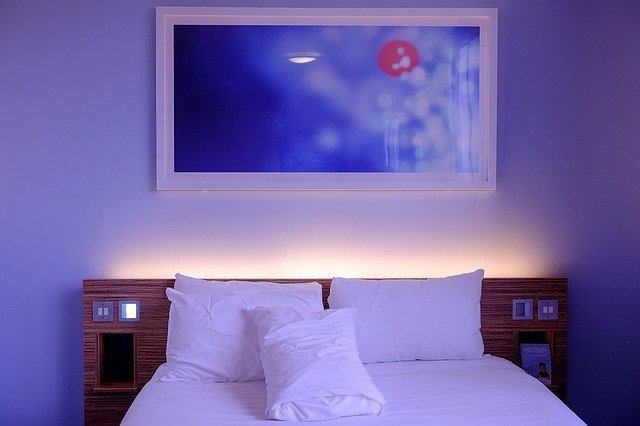Lockdown Air Quality Boost in Oxford Led to Reduced Asthma Hospital Stays
New research shows that asthmatics in Oxford had fewer hospital stays in 2020, largely due to reduced air pollution during the national lockdown. Falling...
Read Full Article
A building intelligence specialist is warning that there is an HVAC legislation loophole within hotels which may facilitate the further spread of COVID within quarantine hotels.
New rules mean that British people returning from 33 countries will have to quarantine in hotels, a technique already in use across Asia, Australia and New Zealand.
Currently, there is no legislation that governs the state of the internal air quality and the management of HVAC plant in hotels. This reveals a gap in the fight to make hotels COVID-secure, compounded by the fact that many hotel rooms do not have easily openable windows, which makes it hard to introduce sufficient quantities of fresh air.
Horizon Controls, the building intelligence architects, is also concerned that poorly maintained HVAC can be a facilitator for COVID flow around a building and if so, does this mean quarantined hotels become incubators for the disease.
“We’ve got all these contacts in other countries that have already rolled this out for some time. They could offer some really valuable support and we’re just simply kept in the dark.”
–Rob Paterson
CEO, Best Western Hotels UK
As reported by BBC Radio 4’s Today Programme, hotel chains are at a loss as to when mandatory quarantine for people travelling into the UK will begin.
The CEO of chain Best Western Hotels UK, Rob Paterson, told the BBC that the industry hasn’t received any clear guidelines or even a start date for the policy. He described the lack of communication:
“We’ve offered that help, we’ve got a lot of experience with quarantine, in managing COVID-positive environments through the project we did with the NHS.
“We’ve got all these contacts in other countries that have already rolled this out for some time. They could offer some really valuable support and we’re just simply kept in the dark.”
Horizon Controls advises that there are a number of ways hotel groups and hoteliers can ensure their hotels are COVID secure, these include:
Picture: a photograph of a bed in a hotel room
Article written by Ella Tansley | Published 04 February 2021
New research shows that asthmatics in Oxford had fewer hospital stays in 2020, largely due to reduced air pollution during the national lockdown. Falling...
Read Full ArticleInnovative Proptech companies such as LightFi are paving the way to net-zero by helping buildings become more energy efficient whilst promoting occupant health and...
Read Full ArticleBillionaire entrepreneur Elon Musk has long hinted at a desire to enter the smart HVAC system market, a move that BESA argues will inject a much-needed boost into the...
Read Full ArticleWith summer on its way, what are the most important steps facilities managers can take to ensure HVAC systems are optimised for effective performance in hot...
Read Full ArticleThe advice includes how to ventilate rooms whilst keeping them warm, monitoring indoor air quality, and safely ventilating vehicles. What are the Legal...
Read Full ArticleDetailed in the UK Governments Autumn and Winter Plan, option B could see the re-introduction of masks and other restrictions. What does this mean for the newly...
Read Full ArticleSAV Systems' AirMaster AM 1000, a mechanical ventilation unit, has been awarded Passivhaus Component certification. The flagship AM 1000 is the first...
Read Full ArticleImagine an office where, in the event of a pandemic, an app will inform tenants that the air conditioning is running on fresh air only and disinfecting UV lamps have been...
Read Full ArticleClenzair offers state of the art NPBI air purification. It has been proven to eliminate 99.9 per cent of COVID-19, viruses and bacteria as well as eliminating other...
Read Full ArticleThe temporary shutdown of a building can create hazards for returning occupants, one being mould where there is humidity and lack of ventilation. Stuart Kerr,...
Read Full Article